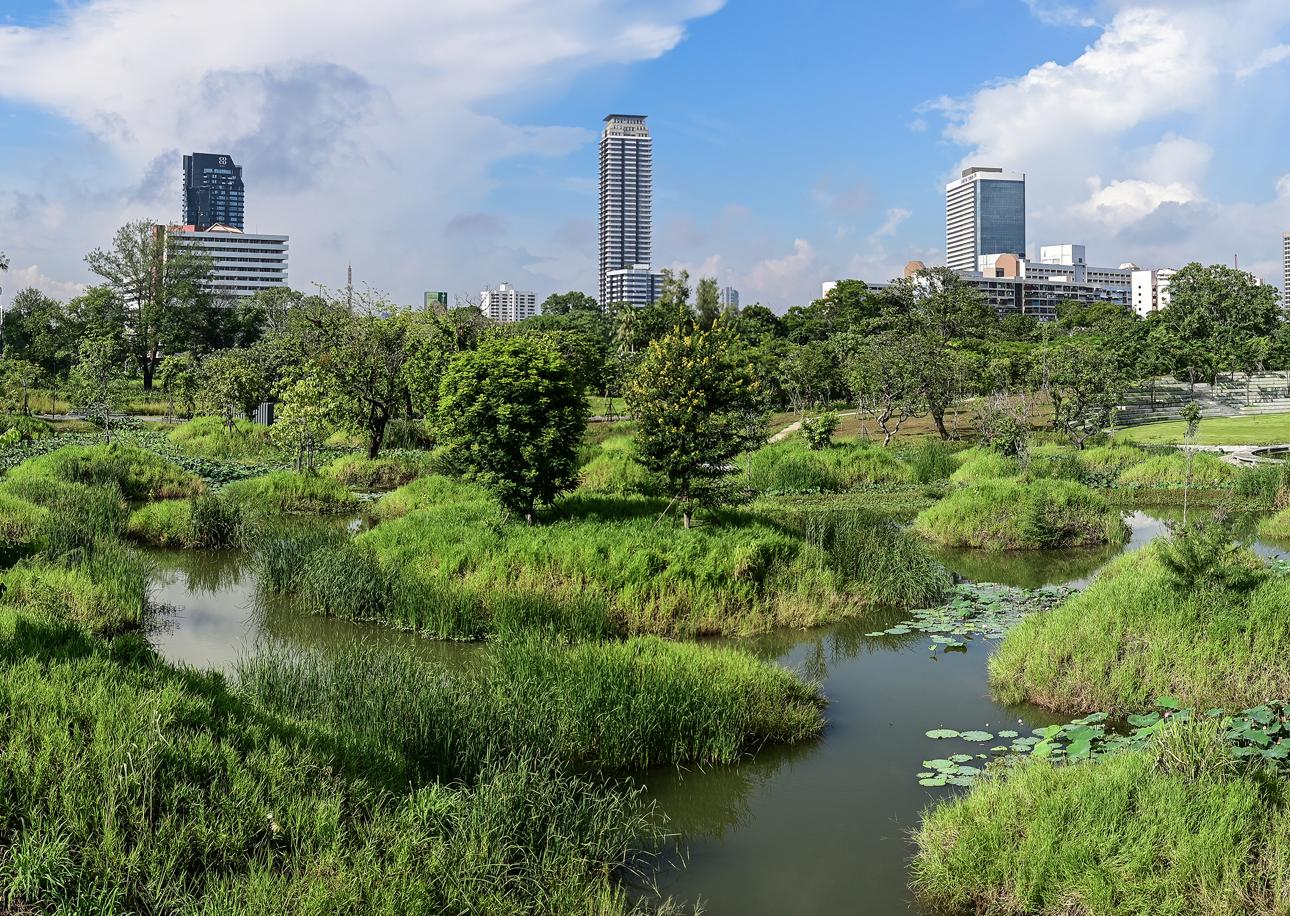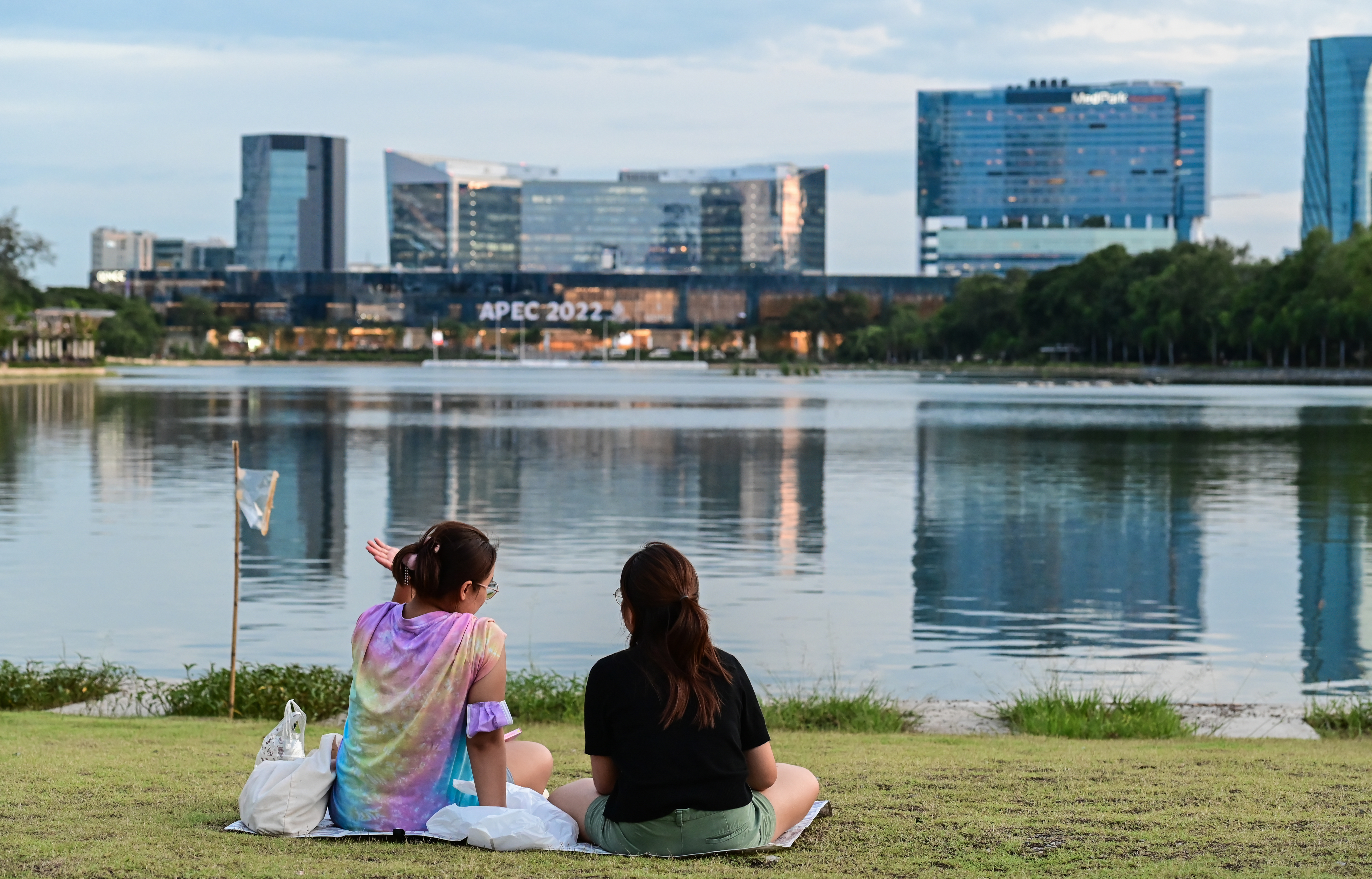Black Grills: Homage to the Asian Tradition of Blackened Teeth, Once a Mark of High Status
Courtesy of @sailorr Sailorr and Molly Santana’s black grills fuse hip-hop swagger ...

[This story first appeared in Koktail Magazine Issue 4.]
All photos by John Clewley.
“For the leaping greenly spirits of trees” – William Carlos Williams
In the mid-1990s, I used to go for walks with my toddler son in the wetlands of Soi Ari, just off Phahonyothin Road, to enjoy the amazing flora and fauna of what was one of Bangkok’s last wetland areas. Ari Soi 1, where we lived, was mainly low-rise then; it had tennis courts and lots of greenery. But nothing lasts in Bangkok, and sure enough this government-owned wetland plot was transformed as agencies like the Revenue Department and Public Relations Department moved into the compound.
Despite some “green” measures to mitigate the inevitable arrival of concrete and tarmac, the compound is a shadow of its former natural self. Concrete banks on ponds might look neat and tidy, but they offer little in the way of habitat for the small insects and crustaceans, which provide food for larger animals like birds and amphibians.

A view of QSNCC from the park grounds
There are, of course, some beautiful parks in Bangkok. For instance, Railway Park (Suan Rot Fai), formerly a golf course owned by the State Railway of Thailand, was opened in 2002 and is a great place to explore on a bicycle. As a former golf course, it has the softest grass of any park in the city—perfect for an afternoon nap!
These are the parks my son and I would explore when we lived in Ratchawat, but when we moved to the urban jungle that is Lower Sukhumvit, our green options became much more limited. Fortunately, we found out about Bangkok’s “green lung”, better known as Suan Pa Ket Nom Klao, a 75- rai forest in Bang Krachao located across from Wat Klong Toei Nok and the gates of the city’s main port. The park has been rehabilitated and now features a bird-watching tower, bike trails, and an educational facility for students. Stand on the fourth floor of the bird-watching tower and you cannot hear any traffic noise. It’s one of the most chilled, relaxing spots in the City of Angels.
But the hassle of going to Klong Toei and crossing the river, then hiring a bicycle to get to the park, all seem too much for some of my friends who want something much more convenient. On August 12, they got their wish: a huge new extension to Benjakitti Park, called Benjakitti Forest Park.
Members of a running group stop for conversation
Benjakitti’s lowland freshwater forest
Wipapanon Seesim of the Public Parks Service explained how the project started and where it’s going. In 1994, the Thai Tobacco Monopoly donated 453 rai to serve as “the lungs of the city”, and in 2004, the first stage, a 142-rai water garden, was opened by HRH Queen Sirikit. Developed though a collaboration between the Treasury Department and the Royal Thai Army, the project featured a 1.8km running track set around a lake, the Queen Sirikit National Convention Center (only recently renovated and re-opened on September 22), and a thin strip of trees. The park became known as an exercise ground for joggers and walkers.
“In 2016, Phase 2 and 3 were initiated,” said Wipapanon. “The idea is to have four connected ponds that recycle and clean wastewater from Khlong Phai Singto that runs alongside the park to Wireless Road. We can process 1,600 cubic metres of water a day.” She added that the water is first piped to a pond with a mangrove forest and aquatic plants, then to a pond with a lowland freshwater swamp forest, followed by a pond with a lowland evergreen forest, and finally to a pond surrounded by agroforestry and garden plants (with lots of fruit trees and plants that feed birds). In addition to treating wastewater, the park’s unpaved surface can hold more than 128,000 cubic metres of water in the rainy season.
The original plot featured many old trees, which are now part of the park. A stunning new feature is a skywalk that hovers over the ponds and links with a 1.8km “green mile” connecting Lumphini Park with Benjakitti Park. The first part of the skywalk elevates you right into the middle of a magnificent stand of jamjuree trees (Albizia saman), also called rain or monkey pod trees, which are flowering right now. These huge, mature trees seem to hold back the rising skyscrapers that encircle the park like green sentinels. The rain trees are part of the existing stock of 1,700 mature trees, to which landscape designers added a further 6,000 native species like sadao (neem), bodhi (sacred fig), banyan (strangler fig), and many kinds of fruit trees.
An engaged couple smiles for a photo at the park’s skywalk
The walkway hovers above a five-kilometre maze of intertwining pathways that are seemingly set at random, encouraging parkgoers to get lost in nature. The pathways take you past drumlin-like mounds of earth that house trees and shrubs. Insects hum and birds sing, and you can’t hear any traffic. So far, I’ve seen crows fight with egrets, flitting sunbirds, snakes, monitor lizards, dragonflies and all kinds of insects, and fish. The site also includes an amphitheatre that can hold up to 15,000 people; some 2.8km of jogging pathways; and a 3.4km track for cyclists. Seesim says concerts are planned, and there will be a museum and sports facilities as well. Although the details of what kind of museum are yet to be determined, one of the first priorities is to offer bicycle rentals to visitors, à la Suan Rot Fai and Bang Krachao.
This new park extension attracts more than 10,000 people on weekends, with visiting groups including joggers, walkers, and cyclists; students taking graduation photos; guys photographing “pretties”; young parents and kids; strolling couples; wildlife photographers; and those like me who just want to sit under a mature rain tree, ponder the universe, and marvel at its glorious crown.
On September 15, a 10-rai dog park was opened alongside the canal with access via Sukhumvit Soi 10 or Rachadapisek Road. “Many people have asked about a dog park, so we’ve opened one in the corner near the main gate,” Wipapanon said. “If demand is high, we’ll extend the park along the canal.”
A couple in front of the amphitheatre pond
University graduates on a viewing platform
Wipapanon hopes that the park will enable visitors to appreciate the value of nature, of trees and natural resources. After all, convening with nature, walking among trees and flowers, is good for you, or as author Julia Plevin argues, “Forest bathing is the antidote to modern life.”
It was Japanese official Tomohide Akiyama who first came up with the idea of shinrin-yoku, or “forest bathing”, in the 1980s to offer an eco-solution to high-tech burnout by reconnecting people with forests. This new type of eco-therapy has roots in traditional Japanese life, which venerated spirits found in nature and recognised the ability of the natural world to heal and promote health. Researchers followed up on how trees could have immune-boosting properties and found that certain plants broadcast essential oils, called phytoncides, which can help people remove stress and enhance mood.
So you don’t even need your jogging shoes, phone, or Fitbit to recharge yourself at Benjakitti Forest Park. Just follow the pathways and meander among the trees and aquatic plants, or sit down and listen to the sounds of nature—the buzz of bugs, the murmur of flowing water, the susurration of leaves. Forget about the neon lights and noisy traffic of your urban life for a little while and reconnect with nature.
“I think I shall never see A poem as lovely as a tree.” – Joyce Kilmer
Note: The Benjakitti Dog Park requires registration via a QR code at the park’s entrance before dogs and their humans can use it.
Courtesy of @sailorr Sailorr and Molly Santana’s black grills fuse hip-hop swagger ...
Pets, as cherished members of our families, deserve rights and protections that ...
These top 5 barber shops in Bangkok are where gentlemen can elevate ...
Wandering around the globe, try out the signature tastes of cultures across ...
Must-have gadgets for kids in the Y2K are, predictably, making a comeback ...
The feral lime-green feminine frequency that won't stop multiplying Somewhere last year ...
Wee use cookies to deliver your best experience on our website. By using our website, you consent to our cookies in accordance with our cookies policy and privacy policy